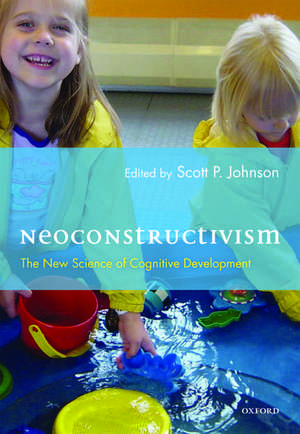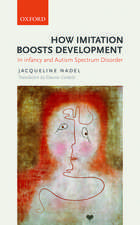Neoconstructivism: The New Science of Cognitive Development
Autor Scott Johnsonen Limba Engleză Hardback – 28 ian 2010
Preț: 479.21 lei
Preț vechi: 912.00 lei
-47% Nou
Puncte Express: 719
Preț estimativ în valută:
91.71€ • 99.58$ • 77.03£
91.71€ • 99.58$ • 77.03£
Carte tipărită la comandă
Livrare economică 11-17 aprilie
Preluare comenzi: 021 569.72.76
Specificații
ISBN-13: 9780195331059
ISBN-10: 0195331052
Pagini: 384
Ilustrații: 50 halftones, 100 line illus.
Dimensiuni: 257 x 175 x 25 mm
Greutate: 1.12 kg
Editura: Oxford University Press
Colecția OUP USA
Locul publicării:New York, United States
ISBN-10: 0195331052
Pagini: 384
Ilustrații: 50 halftones, 100 line illus.
Dimensiuni: 257 x 175 x 25 mm
Greutate: 1.12 kg
Editura: Oxford University Press
Colecția OUP USA
Locul publicării:New York, United States
Notă biografică
Professor of Developmental Psychology, University of California at Los Angeles










